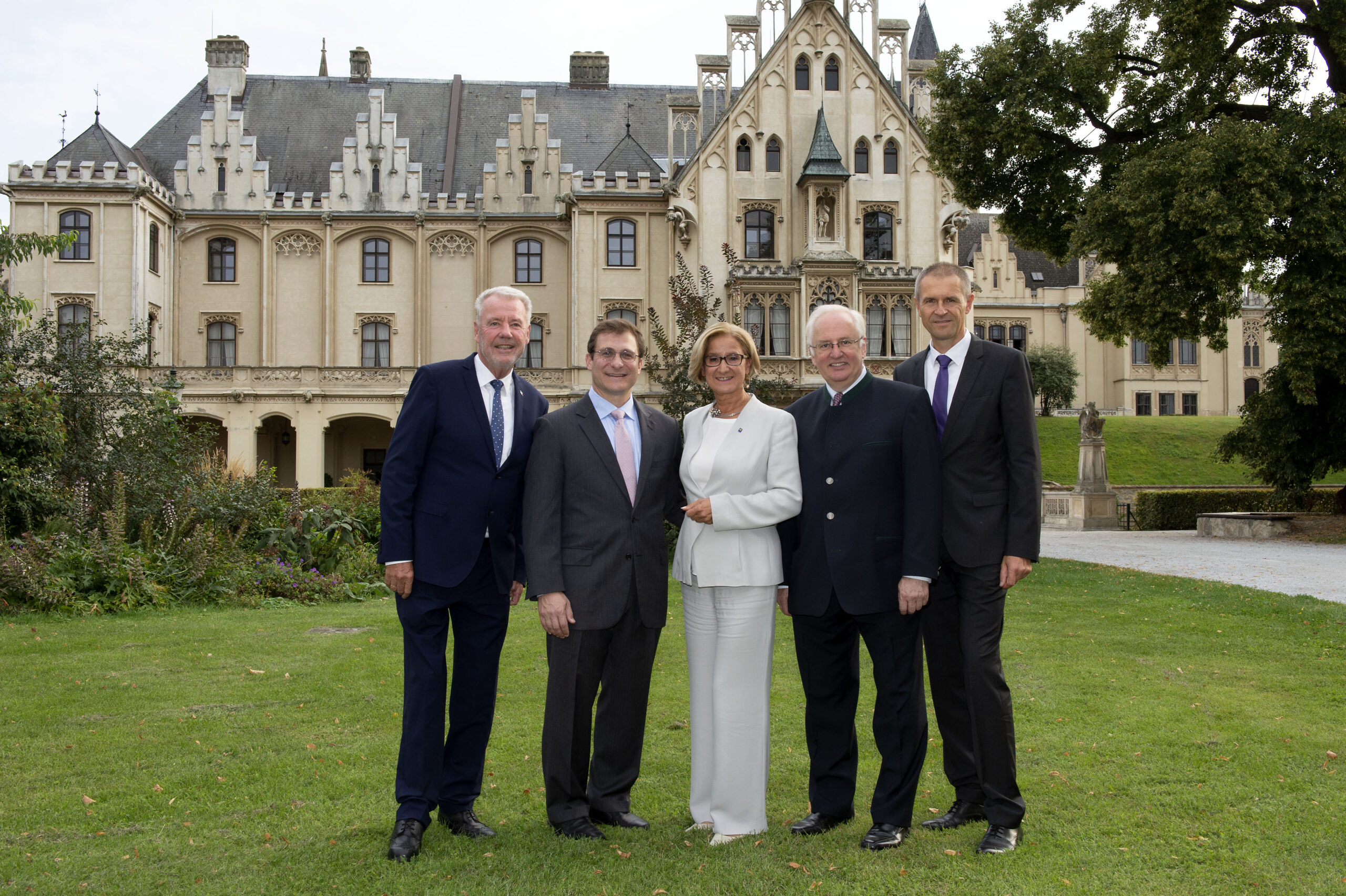»World Forum on Particle Therapy«: international experts define strategies for the future of particle therapy
On the initiative of the MedAustron Ion Therapy Center (AUT) and in collaboration with the MD Anderson Cancer Center (USA), the world leaders in particle therapy met last week at Grafenegg castle in Austria at the "World Forum on Particle Therapy". For the first time, they discussed the visions and challenges for this form of therapy within such a framework in order to forge joint strategies for the coming years.

Cancer indications for particle therapy are expanding, the technology is developing rapidly – but the number of centers for particle therapy worldwide is still modest. This emphasizes the importance to have a common vision and the same goal for rapid progress in the further development of the therapy. With the “World Forum on Particle Therapy” (WFPT), MedAustron succeeded in initiating a dialogue on a global level about strategic questions on particle therapy. The participants represented the most important particle therapy centers in Europe, Asia and the USA, corresponding research centers, organisations and partner institutions or companies. They discussed the contribution particle therapy can and should make in the treatment of cancer patients in the future, key research priorities that have to be met and which challenges have to be mastered.
The forum focused on six main topics: 1. the current challenges of ion therapy, 2. the necessary development steps from a technological and radiobiological point of view, 3. ion therapy in combination with systemic or immunotherapy, 4. the necessary clinical studies for improved evidence, 5. the cooperation of ion therapy and conventional radiation therapy and 6. the view of industry. For each of these, a group of experts discussed previously defined questions. The results of these thematic sessions will be summarised and published in a white paper.
A total of 175,000 patients has already been treated with particle therapy worldwide. Currently, there are about 70 particle therapy centers in operation, the majority of which being pure proton centers. One of them is the MD Anderson Cancer Center, located in Houston, Texas. As a leading institute, MD Anderson has decades of experience in the treatment of cancer patients, and is a leader in preclinical research as well as in conduct of clinical trials. The Austrian particle therapy and research center MedAustron is one of only six centers worldwide combining different particle types and has been treating cancer patients in its state-of-the-art facility since late 2016.
The event was supported by leading partners from the industry: Augmenix, Cosylab, Hitachi, IBA, RaySearch, C-RAD, Orfit, medPhoton, Mevion and Varian.
